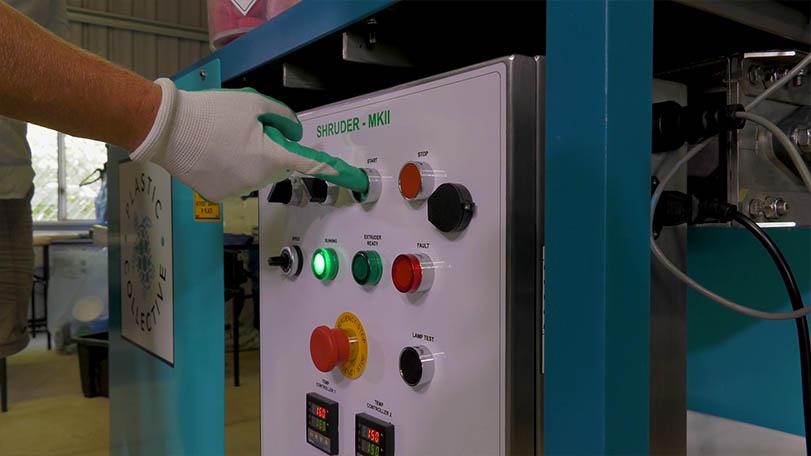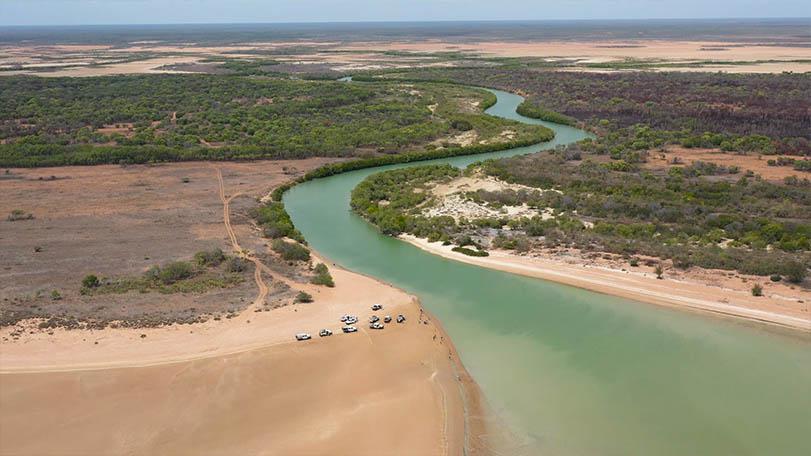
Earthwatch and Coca‑Cola Australia Foundation join forces to tackle marine pollution
04-06-2020
The Gulf of Carpentaria is one of Australia’s natural treasure troves. Known for its spectacular coral reefs, pristine coastlines and thriving estuarine wetlands, it truly is a remarkable place to visit and explore.
Not only a natural geological beauty, The Gulf of Carpentaria also plays a very important role in supporting the habitats of thousands of marine species as well as doing its part in mitigating climate change, by sequestering a significant level of carbon.
But the area is under threat.

In 2015, the Gulf of Carpentaria was victim to extreme temperatures, drought and lowered sea levels leading to one of the world’s worst instances of mangrove forest dieback. Since then, various organisations have made an effort to do their part to help restore the Gulf to a healthy state, including the Coca‑Cola Australia Foundation’s 2020 flagship partner, Earthwatch Australia.
Founded in 1971, the global environmental research charity is working towards making a big difference to sustainability initiatives around the world. Locally, it’s working with Plastic Collective and Carpentaria Land Council Aboriginal Corporation to make a real difference to the Gulf through the Wetlands not Wastelands program.
Wetlands not Wastelands

Drought and extreme temperatures aren’t the only things affecting the Gulf. Marine pollution is also taking its toll.
“Ghost nets and discarded fishing gear are some of the most significant marine debris issues in the Gulf. Entanglement of wildlife is obviously one of the major impacts that this type of marine debris makes. So the recovery and actual discarding of these items is really important,” said Cassandra Nichols, CEO of Earthwatch Australia.

“Rangers in the region have recently conducted a number of surveys in the mangroves around Normanton and have picked up an increase in plastic waste. This suggests waste is coming from the local area and so we need to put solutions in place to address this.”

That’s where the Wetlands not Wastelands program comes in. It’s a new pilot program launched in partnership with Earthwatch Australia, fellow Coca‑Cola Australia partner, Plastic Collective and Carpentaria Land Council Aboriginal Corporation.
It will see the Earthwatch team working with the local Normanton and Burketown communities to educate the local indigenous rangers on their marine pollution strategies. Thanks to Plastic Collective, two Shruder Recycling Stations will not only help remote communities with their recycling efforts, but also enable an economic opportunity for the community. Rangers will be trained in how to turn the plastic waste into valuable commercial products which can then be sold to market.

“We were introduced to both Plastic Collective and Carpentaria Land Council Aboriginal Corporation, through other partners that we already have because they knew we shared the same vision to find a solution to the lack of plastic waste recycling in remote regions of Australia,” Cassandra said.
“We’ve been working with Plastic Collective now for over a year in Bali around a similar village-scale recycling program. We had been talking to them for a while about wanting to develop something here in Australia with our own local Indigenous communities. It’s really exciting that it’s finally coming to fruition.”
Working together is the answer to future sustainability

Because of its collaborative approach to help solve the plastic problem, CCAF and Earthwatch Australia have formed a $600,000 three year partnership to execute the Wetlands not Wastelands program.
According to Malcolm Hudson, chairman of CCAF, the partnership is exciting not only because of its collaborative nature but also as it aligns with Coca‑Cola’s global goal to create a world without waste.
“The unique partnership of environmental organisations combining local indigenous knowledge, training of indigenous rangers and recycling infrastructure is a first-of-its-kind and will be of great support to the local community,” Malcolm said.
“It is hoped that once this model is proven, it can be scaled to other remote communities who have similar marine pollution issues.”
The program also aligns with the Coca‑Cola Australia Foundation’s mission to create sustainable futures for everyone. This year’s grant criteria aligned with the United Nations Sustainable Development Goal Number 14: Life Below Water, to prevent and significantly reduce marine pollution of all kinds.
According to Cassandra, it’s partnerships like these that allow the grant to reach its full potential and she’s excited to see where it takes the program.

“The Coca Cola Australia Foundation’s support has enabled us to bring together the strengths of citizen science and behaviour change programs, as well as the mobile plastic recycling technologies and indigenous knowledge, to create a locally based, community-led recycling solution to the plastic waste issue. Without the support, we wouldn't be able to come together to create this innovative program.”
For more information on the Coca‑Cola Australia Foundation head here.
Read Time
What others are reading
More to enjoy

